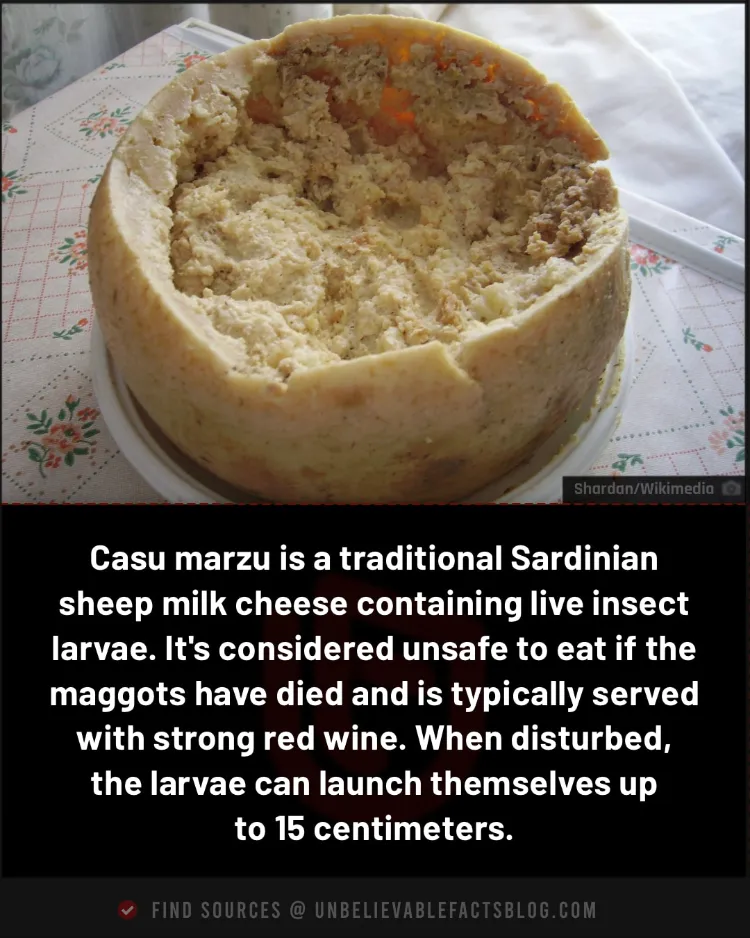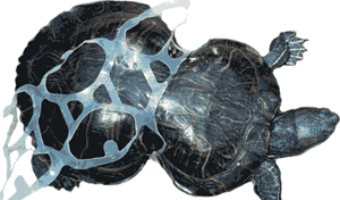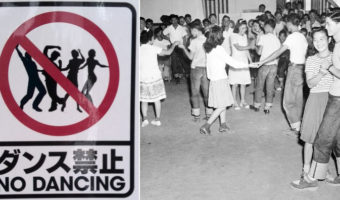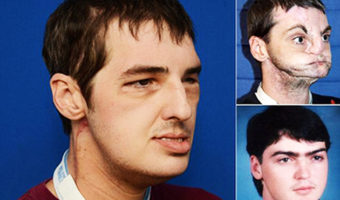200 Unbelievable Facts That Are Hard to Believe
Table of Contents
70/200
McLaren F1 repairs are prioritized due to high value.
The McLaren F1 has become so valuable that it’s nearly impossible for an insurance company to “write off” one as a total loss. The repair costs, no matter how extensive, are always less than the car’s market value. Additionally, McLaren’s Special Operations division ensures that any damaged F1 can be fully restored, regardless of the severity of the damage.
67/200
Casu martzu cheese contains live maggots that can leap.
Casu marzu is a traditional Sardinian sheep milk cheese containing live insect larvae. It’s considered unsafe to eat if the maggots have died and is typically served with strong red wine. When disturbed, the larvae can launch themselves up to 15 centimeters.
66/200
KFC recipe’s secrecy ensured by two suppliers sharing duties.
KFC’s handwritten recipe is secured in a vault at its Louisville headquarters. To protect secrecy, two suppliers are involved: one prepares part of the mix, while the other finishes it, ensuring no single party knows the complete recipe.
65/200
Mizuho’s 2005 trading error led to $225 million loss.
In December 2005, Mizuho Securities, a leading Japanese investment bank, suffered a massive financial loss due to a trading error. A broker intended to sell one share of J-Com Co. at ¥610,000 but mistakenly placed an order to sell 610,000 shares at ¥1 each. This typo resulted in a staggering loss of over ¥27 billion (approximately $225 million).
64/200
Teens burned homework to stay warm while lost snowboarding.
Rebecca Twigg. A two-time Olympic medalist and six-time cycling world champion, Twigg graced Vanity Fair, Sports Illustrated, and countless commercials before suddenly leaving the sport. Struggling to adapt to traditional jobs, she has spent years living on the streets.
63/200
Teens burned homework to stay warm while lost snowboarding.
In January 2020, two teenage snowboarders lost their way near Whitewater Ski Resort in British Columbia. They stayed warm overnight by burning homework from a backpack. Rescued the next day, they avoided frostbite, sustaining only minor frostnip.
62/200
Cloned primates highlight fewer barriers to potential human cloning advancement.
With minimal scientific barriers remaining, human cloning is technically closer than ever. In 2018, Chinese scientists cloned two crab-eating macaques, Zhong Zhong and Hua Hua, marking the first successful cloning of primates and a significant step toward the feasibility of human cloning.
61/200
Wetness is perceived by combining temperature and pressure, not directly.
Humans cannot feel wetness directly; instead, we perceive it through temperature and pressure cues, which our brains interpret as a wet sensation.
































